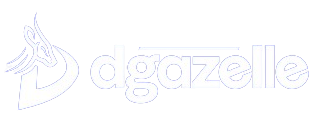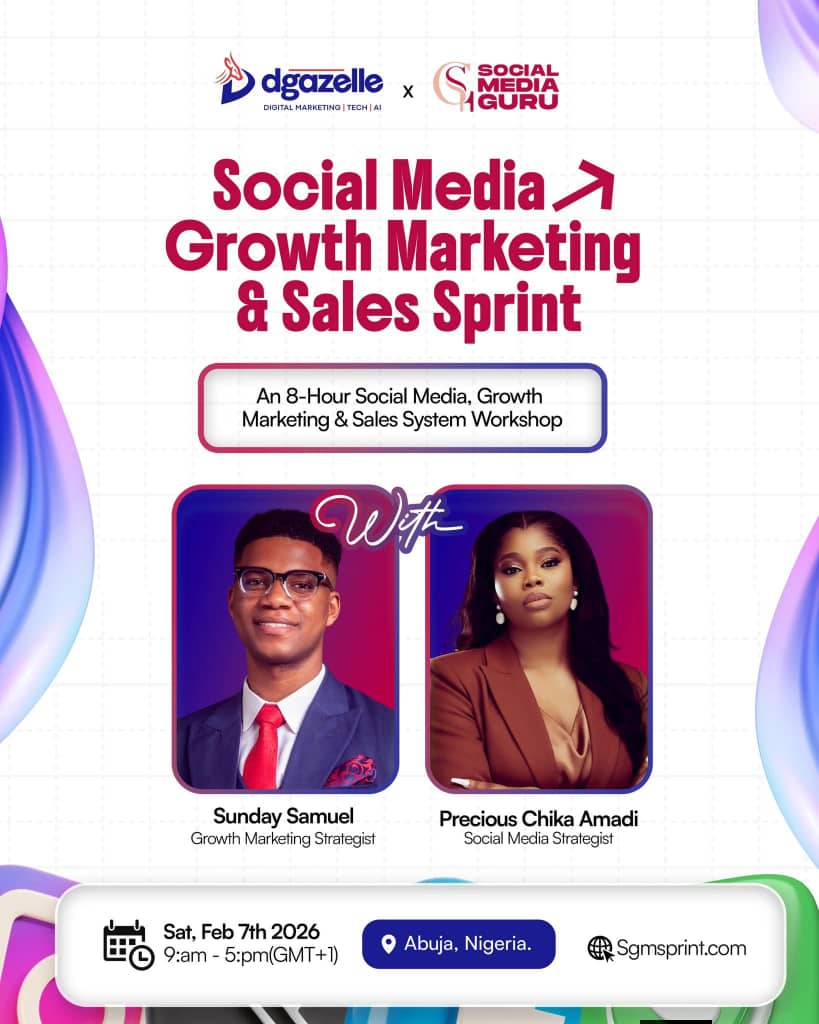As we approach 2025, the marketing landscape is evolving rapidly, driven by AI, data-driven tactics, and a shift in consumer behavior. The old strategies won’t cut it anymore. Personalization, automation, and video content are becoming crucial tools for engagement, while immersive content and brand influencers are gaining traction to capture attention in an increasingly noisy digital world.
Consumers crave authenticity, making storytelling an essential aspect of any campaign. The strategies that worked in the past won’t get you the results you need in 2025. To stay ahead, you need to adopt innovative marketing approaches that leverage AI, personalized experiences, and impactful content. This year is your opportunity to break through the noise, engage more effectively with your audience, and propel your sales to new heights. Ready to skyrocket your sales in 2025? Keep reading to discover the five key strategies that will drive your business forward.
Reason For A Solid Marketing Strategy In 2025
A well-designed marketing strategy is the cornerstone of any thriving business. It aligns your brand with its objectives, steers your content, and keeps you competitive in a dynamic market. A crucial element in developing this strategy is the marketing funnel, which outlines the stages a potential customer goes through: awareness, consideration, decision, and retention.
A robust strategy helps guide prospects through these phases, enhancing conversion rates and fostering long-term loyalty. Without a clear plan, businesses risk wasting resources and missing out on growth opportunities. By embracing emerging trends within your marketing funnel, you can stay ahead of the curve, effectively reach your audience, and drive innovation and growth. Let’s dive into the top marketing strategies to adopt in 2025 and position your business for success.
Video: The Cornerstone of Modern Marketing
In a world where the average person is exposed to over 6,000 ads daily, capturing attention is a major challenge. Video is a dynamic, engaging format that stands out. Here’s why it’s so effective:
- Higher Engagement: According to Forbes, viewers retain 95% of a message when watching a video, compared to just 10% when reading text.
- Greater Shareability: Social videos generate 1,200% more shares than text and image content combined.
- Boosted Conversions: A well-placed video on your landing page can increase conversion rates by up to 80%.
How to Leverage Video Effectively
- Create a Strategy: Understand your target audience and set clear goals—whether it’s boosting brand awareness, generating leads, or educating customers.
- Invest in Quality: While authenticity is key, professionally produced videos lend credibility and have long-lasting value.
- Repurpose Content: Maximize ROI by adapting videos for different platforms—short clips for social media and longer content for your website or YouTube. Keep a versatile library for future use.
AI for Content Marketing and SEO in 2025
In the past year, AI has transitioned from a futuristic concept to an integral tool in content marketing and SEO. In 2025, AI will continue to transform how businesses operate by enhancing efficiency and personalizing customer experiences. AI analyzes vast amounts of data to help brands deeply understand their audiences and predict trends. Tools like AI-powered chatbots, content generators, and predictive analytics streamline processes, enabling businesses to create tailored content at scale and improve search rankings.
For SEO, AI helps content rank higher by analyzing search engine algorithms, user behavior, and keyword performance. Platforms like HubSpot and Jasper.ai allow businesses to create content aligned with user preferences, boosting engagement and driving conversions. However, while AI-generated content can be a powerful tool, Google still prioritizes unique, human-written content.
As AI reshapes search results, SEO tactics must adapt. With 28% of Google searches now featuring AI-generated overviews, businesses must focus on niche topics and structure content to answer questions concisely, incorporating multimedia for better engagement. Building high-quality backlinks and optimizing for voice search will also be key in 2025. As AI agents become more influential in decision-making, optimizing for AI-driven systems will ensure your content’s visibility in an increasingly automated world.
Building Authority Through Personality-Driven Marketing
In a crowded market full of faceless corporations, consumers seek genuine human connections. Brands that put a real person at the forefront build trust and make their brand more approachable and memorable.
Studies show that human faces drive engagement, with people forming first impressions in just 100 milliseconds. Trust is also crucial—81% of consumers say trust influences their purchase decisions, and a recognizable face can bridge that gap. Brands with a human presence experience better recall, increased loyalty, and stronger customer relationships. Personal interactions foster emotional connections, making customers feel safer and more comfortable with your brand.
To activate your brand’s personality, humanize your messaging with authentic storytelling and a consistent, relatable voice. Feature key individuals like CEOs or team members in blogs or public engagements. Launch podcasts or video series to offer valuable content and interact directly with your audience. On social media, let key personnel share insights and behind-the-scenes content to foster engagement.
Leverage testimonials and user-generated content to add authenticity. Remember, emotionally connected customers are significantly more valuable. By being transparent, consistent, and interactive, you can create lasting relationships that drive loyalty and growth for your brand.
Data-Driven, Personalized Marketing
Consumers today demand more than generic marketing; they expect content that caters to their specific needs and preferences. This is where data-driven personalization comes in. It allows businesses to create tailored experiences at every stage of the buyer’s journey. By collecting first-party data such as browsing behavior, purchase history, and customer preferences, marketers gain valuable insights into consumer behavior. This information enables them to deliver hyper-targeted campaigns that resonate with individual users.
Personalization goes beyond digital ads—it’s also seen in customized emails, product recommendations, and personalized website experiences. By using data to create these tailored interactions, businesses can enhance user engagement, stay ahead of competitors, and ultimately boost conversions. Leading brands like Netflix and Spotify have mastered data-driven personalization, offering content recommendations that keep users engaged longer.
As consumers become increasingly accustomed to personalized experiences, businesses that leverage data will continue to thrive. Personalization allows brands to connect more deeply with their audience, fostering loyalty and increasing the likelihood of repeat business. Data-driven personalization is no longer a trend—it’s a fundamental strategy for success in 2025 and beyond.
Create Stories Worth Sharing
The Power of Storytelling: Storytelling has always been a fundamental part of human communication, from ancient cave paintings to today’s digital media. It’s how we understand the world, share knowledge, and connect with others. Stories are more than entertainment—they evoke emotions and help build connections, making them an essential tool in marketing.
Emotional and Memory Impact: Stories engage emotions, enhancing their power and memorability. When we hear a story, our brains release oxytocin, which fosters trust and empathy. Research by Stanford University found that stories are 22 times more memorable than facts alone, making storytelling an effective way to ensure your message sticks with your audience.
Moreover, stories inspire action. According to Harvard Business Review, emotionally connected customers are more than 50% more valuable than highly satisfied customers, motivating them to act—whether it’s making a purchase, sharing content, or supporting a cause.
Why Storytelling Surpasses Traditional Advertising
- With the average person exposed to over 5,000 ads daily, traditional marketing often gets lost in the noise. Storytelling offers a deeper connection, cutting through the clutter and offering something more meaningful than a sales pitch.
- Building Authentic Connections: By humanizing your brand, storytelling highlights your values, mission, and the people behind your business. This authenticity builds trust, with 91% of consumers more likely to buy from an authentic brand.
- Differentiation in a Crowded Market: A unique brand story sets you apart from competitors, helping you carve a distinctive identity that resonates personally with your audience. It fosters stronger emotional connections, making it easier to build a loyal customer base.
- Creating Communities: Storytelling encourages engagement, transforming passive consumers into an active community. Brands with compelling stories see customer loyalty increase by up to 30%.
- The Science Behind Storytelling’s Impact: Neurologically, stories activate various areas of the brain, including those responsible for sensory experiences, emotions, and memory. Functional MRI studies show that listening to stories leads to “neural coupling,” where the audience’s brain synchronizes with the narrative.
Tangible Marketing Benefits
- Higher Engagement Rates: Narrative-driven content garners up to 300% more engagement compared to non-narrative content, including more likes, shares, and comments.
- Improved Conversion Rates: Emotional storytelling can increase conversions by tapping into the customer’s motivations. Origin’s case study found that storytelling boosted conversion rates by 30% over a fact-based approach.
- Stronger Brand Recall: When a story is memorable, so is your brand. Studies show that 80% of consumers are more likely to remember a brand associated with an engaging story.
Storytelling remains a powerful marketing tool, offering emotional engagement, increased brand recall, and stronger customer relationships, ultimately driving action and loyalty.
Conclusion
2025 promises to be a transformative year for marketing, driven by technology, personalization, and high-quality content. Success will come from prioritizing video, adapting to AI-powered SEO, building brand authority, optimizing websites, and crafting compelling stories. Businesses embracing trends like AI-driven content creation, personalized experiences, and immersive AR/VR marketing will gain a competitive edge. However, a solid strategy goes beyond following trends—it’s about finding what resonates with your audience and creating meaningful, engaging experiences. Ready to craft marketing magic that stands out and makes a lasting impact in 2025?
Let’s help you elevate your brand with a tailored digital marketing strategy in 2025. At Dgazelle, we craft impactful, results-driven campaigns that boost visibility, engagement, and conversions. Let’s make your brand stand out—contact us today to get started








